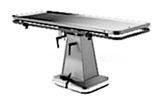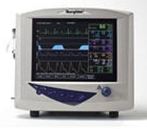Anesthetic Care and Monitoring
We take all surgical and anesthetic procedures very seriously. Each patient receives a full physical examination prior to anesthesia administration, and very close supervision during the procedure by the veterinarian and a staff of experienced veterinary technicians. Your pet’s vital signs will also be electronically monitored by a very sophisticated machine, the SurgiVet Advisor. We use isoflurane gas anesthesia, one of the safest general anesthetics available.
**Anesthesia – What you should know – Washingtion State College ofVeterinary Medicine
When your pet is admitted, you will be given several options including pre-anesthetic laboratory testing to detect subclinical problems, intravenous fluids and laser surgery.
 Diagnostic Laboratory Testing
Diagnostic Laboratory Testing
Blood testing prior to anesthesia is important to the health of your pet. It can identify problems that might require correction prior to anesthesia or that need to be managed post-operatively. The test results may also influence the doctor’s decision of which anesthetics are to be used.
Westwood Animal Hospital’s in house laboratory analyzers allow us to perform pre-operative blood testing quickly on the same day as surgery. Our equipment tests eleven parameters which screen for kidney and liver dysfunction, anemia, diabetes and electrolyte disturbances.

Digital Intravenous Fluid Administration
An intravenous (IV) catheter is highly recommended for all anesthetic services. Most surgical patients receive multiple intravenous medications and an IV catheter provides a painless way to give these medications. A catheter also serves as a port for administration of intravenous fluids using a programmable IV pump. IV fluids are used to improve blood pressure and blood flow to vital organs. Another benefit of a catheter is the immediate access to a vein should life-saving drugs be required to treat a heart arrhythmia or other serious problem.
Programmable digital IV pumps provide very precise measurement of administration rates for fluids given during anesthetic procedures. This is especially important for small pets. IV pumps are also very useful for accurately treating dehydrated patients, as well as for providing fluids for patients recovering from illness
 Heated Surgical Table
Heated Surgical Table
Body temperature is another important vital parameter. Patient’s lose body heat during surgery, most notably during long procedures. To counteract this, we have a surgery table that is heated and we have a thermal blanket which pumps warm water through a flexible pad placed under or around a patient. Maintaining normal body temperature provides an extra margin of safety by supporting normal metabolism during anesthesia.
 Vital Signs Monitor – SurgiVet Advisor
Vital Signs Monitor – SurgiVet Advisor
All patients under general anesthesia are monitored very closely for complications. We have advanced equipment that helps us accomplish this. We can measure a patient’s blood oxygen saturation, expired air carbon dioxide levels, and a continuous waveform of their respiratory rate. We can also monitor blood pressure, either continuously or at programmed time intervals, pulse strength and pulse rate, and of course, an electrocardiogram. Digital alarms warn of vital sign variations and potential problems immediately, helping to prevent emergencies.
 Cutting Edge CO2 Laser System
Cutting Edge CO2 Laser System
Laser surgical procedures are minimally invasive and possess many benefits as compared to non-laser surgical techniques.
Less Pain
The laser seals nerve endings as it “cuts.” As a result, your pet will experience less pain and be more comfortable post operatively.
Less Bleeding
The Laser seals small blood vessels during surgery. This speeds many procedures, reducing the time your pet needs to be under anesthesia, which further reduces possible complications.
Less Swelling and Inflamation
Laser energy does not crush, tear or bruise tissue because the only thing that touches your pet is an invisible beam of light.
The laser can be used for almost any surgical procedure and is especially beneficial for feline declaw procedures, small tumor removals and the removal of dermatologic anomalies (i.e. lick granulomas, skin tags, warts). Contact Westwood Animal Hospital for any further questions on the use of lasers during surgery or to schedule a laser surgical appointment.
What does this mean for your pet?
- Quick return to normal activities – Decreased surgical bleeding, pain and inflammation allows for a shorter post-operative recovery period for the your pet. Healing is rapid, there is less post-operative discomfort and a better course of healing.
- Reduced risk of infection – As the laser removes diseased tissue, it seals the skin and reduces the amount of bacteria present.
- Precision – The laser can remove unhealthy tissue while minimizing adverse effects to healthy surrounding tissue.